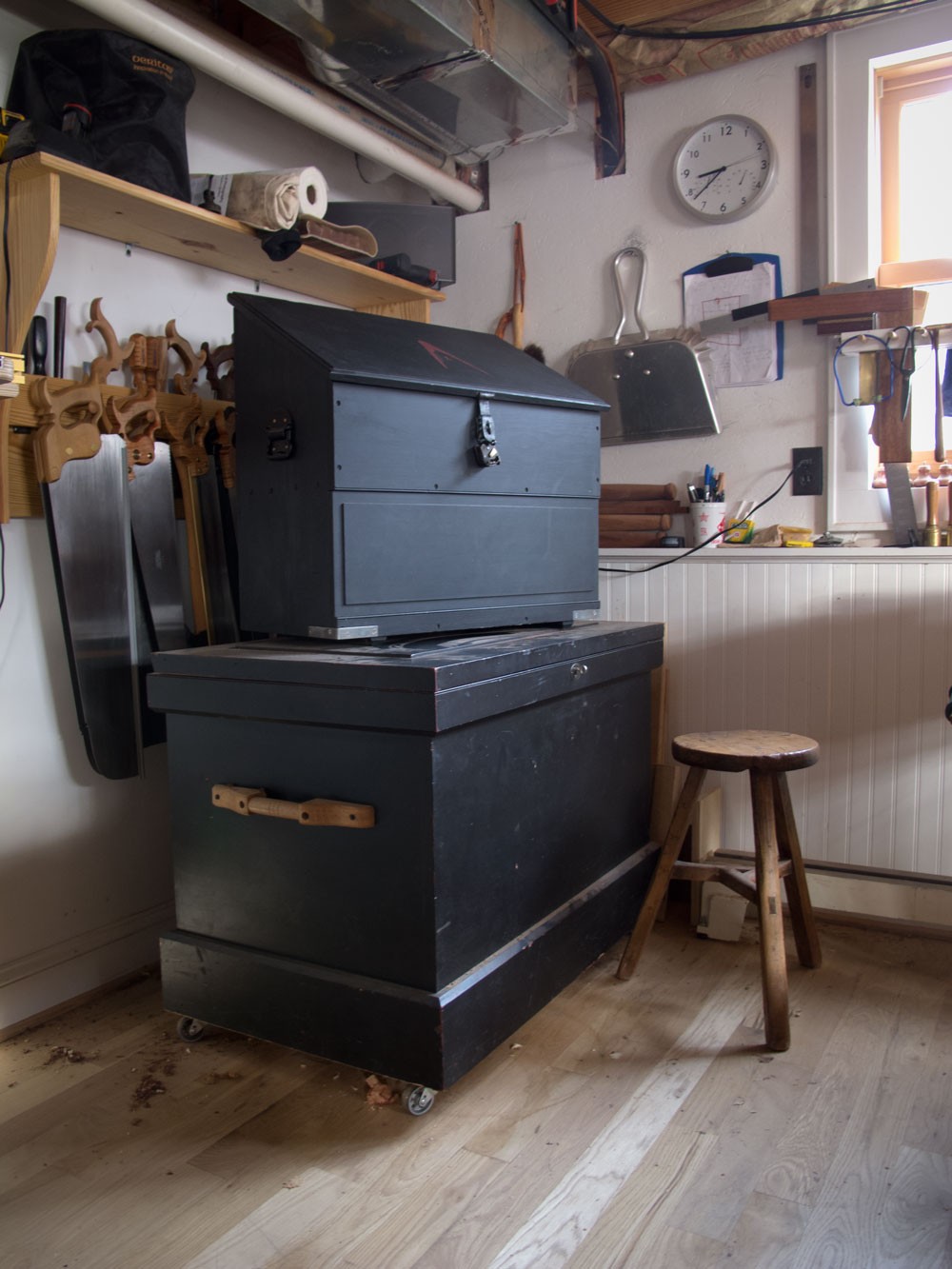When you think of a tool chest, you might picture a large, stationary cabinet in a garage or workshop. But what about when you need your tools on the go? If you’re someone who works on cars, whether professionally or as a dedicated hobbyist, you’ve probably asked: Do They Make Tool Chests For Cars? The answer is a resounding yes! In fact, having a dedicated tool chest for your car can be a game-changer for organization, efficiency, and ensuring you’re always prepared for repairs, maintenance, or even roadside emergencies.
The concept of a portable tool chest isn’t new. For centuries, craftsmen have needed ways to transport their essential tools. Historically, designs have varied based on needs and materials, leading to interesting variations in tool storage solutions. Let’s explore the world of mobile tool chests and how they can serve the modern automotive enthusiast and professional.
 Example of a versatile tool chest suitable for organizing automotive tools and equipment.
Example of a versatile tool chest suitable for organizing automotive tools and equipment.
Portability: The Key Advantage for Automotive Tool Chests
One of the primary considerations for any tool chest designed for cars is portability. Unlike workshop chests that are meant to stay in one place, car tool chests need to be easily moved. Think about the scenarios where you might need a tool chest for your car:
- Roadside Repairs: Being prepared for unexpected breakdowns is crucial. A portable tool chest allows you to carry essential tools for basic fixes, getting you back on the road quickly.
- Track Days and Events: If you’re a car enthusiast who participates in track days or car shows, having a dedicated set of tools in a mobile chest is invaluable for on-site maintenance and adjustments.
- Mobile Mechanics: For professionals who travel to clients’ locations, a car tool chest is their mobile workshop, ensuring they have the right tools for any job.
When it comes to portability, size and weight are critical. Larger, rolling tool cabinets might be suitable for vans or trucks, but for smaller cars, a compact and lightweight chest is ideal. Features like sturdy handles and manageable dimensions become essential. Imagine trying to maneuver a bulky, heavy tool chest into the trunk of a sedan – not practical! This is where smaller, more thoughtfully designed chests come into play.
Types and Construction: From Basic Boxes to Rolling Carts for Cars
The market offers a wide variety of tool chests that are suitable for cars, ranging in size, construction, and features. Let’s consider some common types:
- Portable Tool Boxes: These are the most basic and readily available type. Often made of plastic or metal, they feature a handle and a latching lid. They are lightweight and affordable, perfect for a basic set of emergency tools. However, they might lack the organization and durability for more extensive tool collections.
- Rolling Tool Chests (Small to Medium Size): These offer a step up in capacity and organization. Equipped with wheels and a telescoping handle, they are easy to move around, even when loaded with tools. Many feature drawers and compartments for better organization. These are a good balance of portability and storage for car enthusiasts and mobile mechanics alike.
- Soft Tool Bags: While not technically chests, soft tool bags are another portable option. They are lightweight and flexible, often with numerous pockets and compartments. They are great for smaller tool sets and offer excellent portability, though they may not provide the same level of protection as a hard-shell chest.
Construction materials also play a significant role. Plastic tool boxes are lightweight and resistant to rust, but may not be as durable as metal chests. Metal tool chests, especially those made from steel, offer superior durability and can withstand more demanding use. The choice depends on your needs and the level of protection you require for your tools.
Durability and Security: Protecting Your Automotive Investments
Durability is paramount when it comes to tool chests, especially those intended for cars. Automotive tools can be heavy and sometimes greasy or oily. A well-built tool chest needs to withstand:
- Weight: It must be able to support the weight of your tools without buckling or breaking.
- Impact: It should be resistant to bumps and knocks, especially during transport in a vehicle.
- Environmental Factors: Temperature changes, humidity, and potential exposure to liquids are all factors to consider.
Features that enhance durability include reinforced corners, sturdy latches, and robust materials. For added security, some tool chests come with locking mechanisms to prevent theft, especially important if you’re carrying valuable tools in your car.
Organization and Utility: Making the Most of Your Mobile Workshop
The utility of a car tool chest goes beyond just portability and durability; organization is key. A well-organized tool chest saves time and frustration, allowing you to quickly find the tool you need when you need it. Consider these organizational features:
- Drawers and Compartments: Separate drawers and compartments allow you to categorize tools by type or function, making it easy to locate specific items.
- Tool Trays and Inserts: Removable tool trays or custom foam inserts help keep tools neatly arranged and prevent them from shifting around during transport.
- Labels and Identification: Labeling drawers and compartments can further enhance organization, especially in larger tool chests.
Ultimately, the best tool chest for your car is one that balances portability, durability, and organization to meet your specific needs. Whether you’re a DIY car owner wanting to be prepared for basic maintenance or a professional mechanic needing a mobile workstation, there’s a tool chest solution out there for you. Investing in a quality tool chest is an investment in efficiency, preparedness, and the longevity of your valuable automotive tools.
